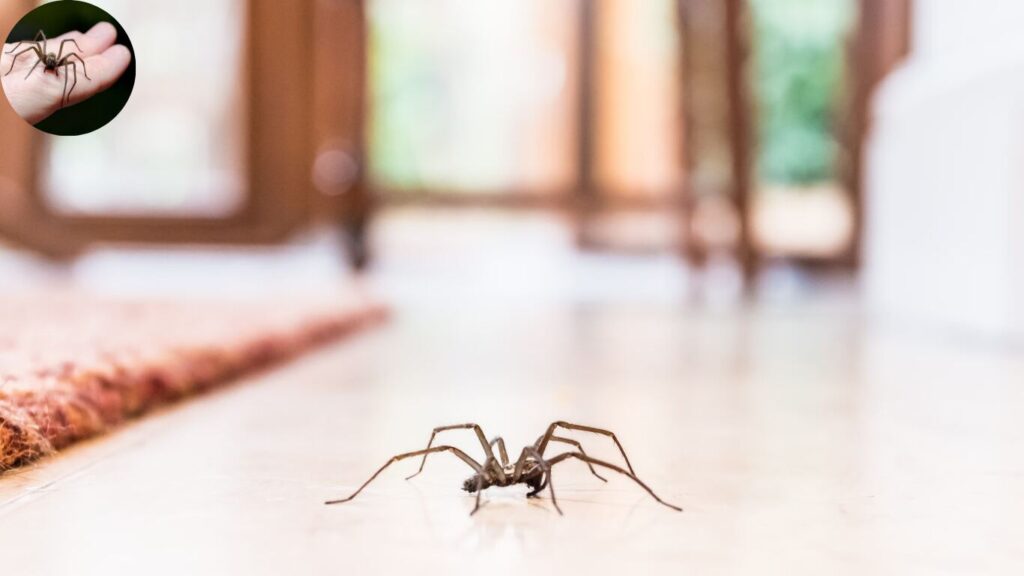House spiders are a common sight in many homes worldwide. Whether it’s a tiny web in the corner of your ceiling or a quick scurry across the floor, these eight-legged creatures often make us pause. For some, the presence of a spider can trigger fear or curiosity, particularly when it comes to the question: does a house spider bite?
| Aspect | Details |
|---|---|
| Common Species | Parasteatoda tepidariorum (common house spider), Tegenaria domestica (domestic house spider), Badumna longinqua (Grey house spider, Australia-specific) |
| Bite Likelihood | Rare; bites occur primarily when spiders are trapped against skin |
| Typical Symptoms | Mild pain, itching, redness, small red bump resembling a mosquito bite |
| Severe Reactions | Rare; may include allergic responses (swelling, rash) or secondary infection |
| First Aid | Clean with soap/water, apply cold compress, use antihistamines for itching |
| Medical Attention | Required for difficulty breathing, spreading redness, or signs of infection (pus, fever) |
| Ecological Role | Controls pests like flies and mosquitoes, supports biodiversity |
Many myths surround house spiders, from their supposed aggressiveness to exaggerated claims about the dangers of their bites.
Understanding House Spiders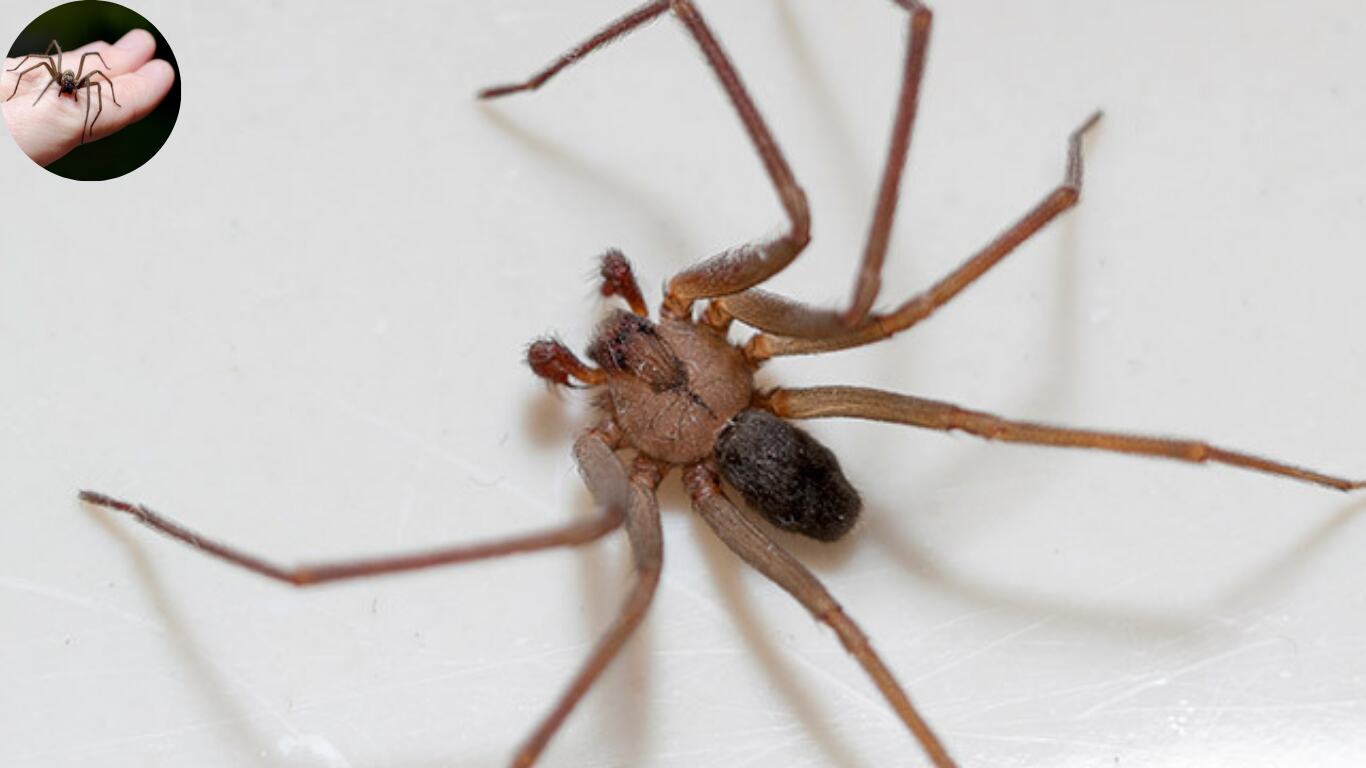
What Are House Spiders?
House spiders are a group of spider species commonly found indoors. They belong to various families and vary in size, shape, and color. Some of the most common species include:
- American House Spider (Parasteatoda tepidariorum): Known for its messy cobwebs.
- Cellar Spider (Pholcus phalangioides): Often called “daddy longlegs.”
- Wolf Spider (Lycosidae): Known for their speed and ground-dwelling habits.
These spiders thrive in human environments, often choosing quiet, undisturbed spaces like corners, basements, attics, and behind furniture. They build webs to catch prey, and their presence usually goes unnoticed unless they cross paths with humans.
Role of House Spiders in the Ecosystem
While they may not be welcome guests, house spiders play an important role in the home ecosystem. Here’s why:
- Natural Pest Control: House spiders feed on insects like flies, mosquitoes, and cockroaches, helping to keep pest populations in check.
- Preference for Indoor Environments: Most house spiders are not drawn to humans directly but to the insects that thrive indoors.
By coexisting with house spiders, you may unknowingly reduce your need for chemical pest control methods!
Do House Spiders Bite Humans?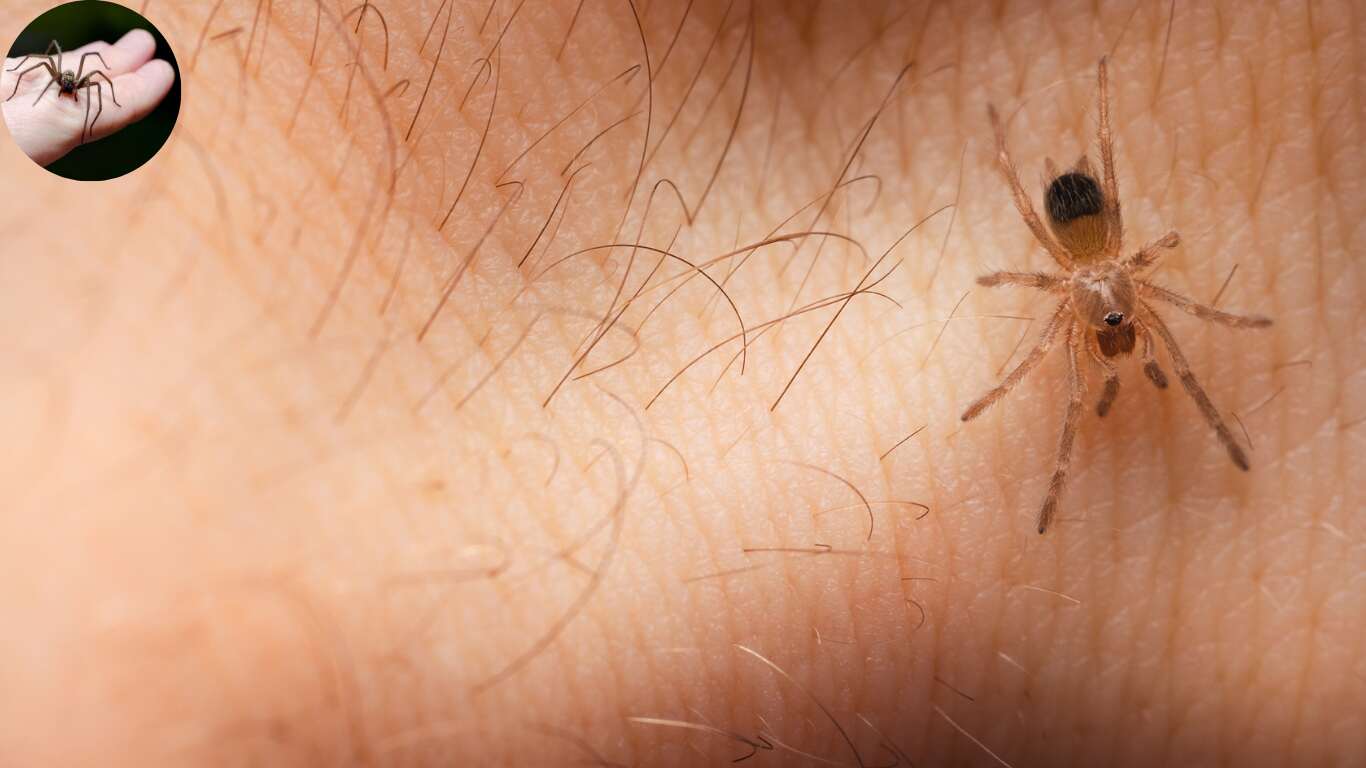
The Science Behind Spider Bites
Spiders have fangs and venom, which they primarily use to immobilize prey. However, the idea that spiders frequently bite humans is largely a misconception. Here’s why house spiders rarely bite:
- Non-Aggressive Nature: House spiders are shy and avoid humans whenever possible.
- Defensive Mechanism: A bite usually happens only in self-defense if the spider feels threatened, such as being trapped or squished accidentally.
You may also read(are brown house spiders poisonous)
When Do House Spiders Bite?
Although rare, there are specific situations where house spiders might bite:
- Accidental Contact: When a spider is trapped in clothing, bedding, or shoes, it may bite as a defense.
- Direct Handling: Picking up or disturbing a spider may provoke a defensive bite.
Even in these cases, house spider bites are infrequent and often harmless. Studies show that most bites are attributed to other insects or skin conditions rather than spiders.
Myth-Busting: Are House Spiders Dangerous?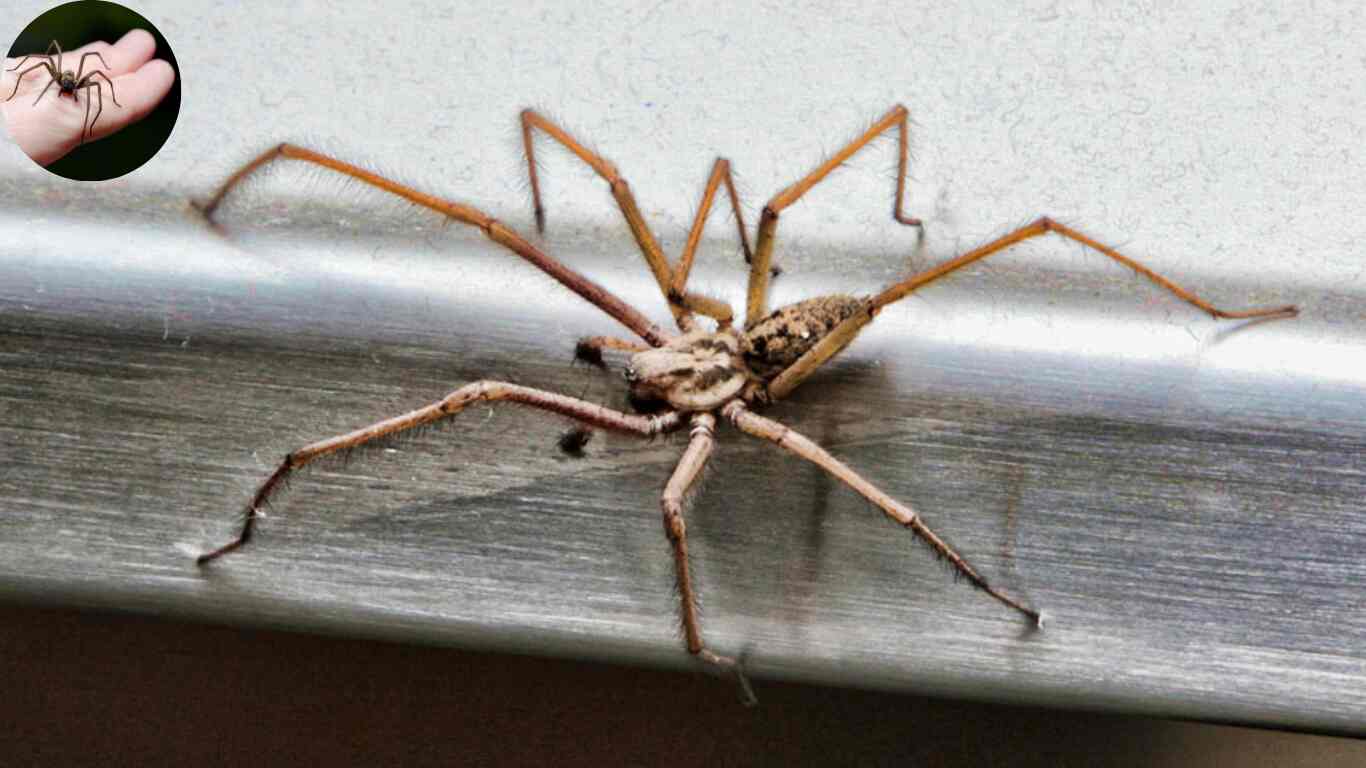
Common Myths vs. Facts
There are numerous myths about house spiders, but most are untrue. Let’s debunk a few:
- Myth: All house spiders are dangerous and venomous.
- Fact: Most house spiders are harmless, and their venom is too weak to affect humans significantly.
- Myth: Spiders actively seek out humans to bite.
- Fact: House spiders are reclusive and prefer to avoid human contact altogether.
Venom and Toxicity
While house spiders do produce venom, they are designed to subdue small prey and not harm humans. When compared to dangerous species like the black widow or brown recluse, house spiders are virtually harmless:
Spider SpeciesVenom PotencyDanger to Humans
American House Spider Mild, non-toxic to humans Harmless
Black Widow Neurotoxic venom Dangerous, medical attention needed
Brown Recluse Cytotoxic venom Can cause tissue damage
Most house spider bites result in mild symptoms, if any, and rarely require medical attention.
What Happens If a House Spider Bites You?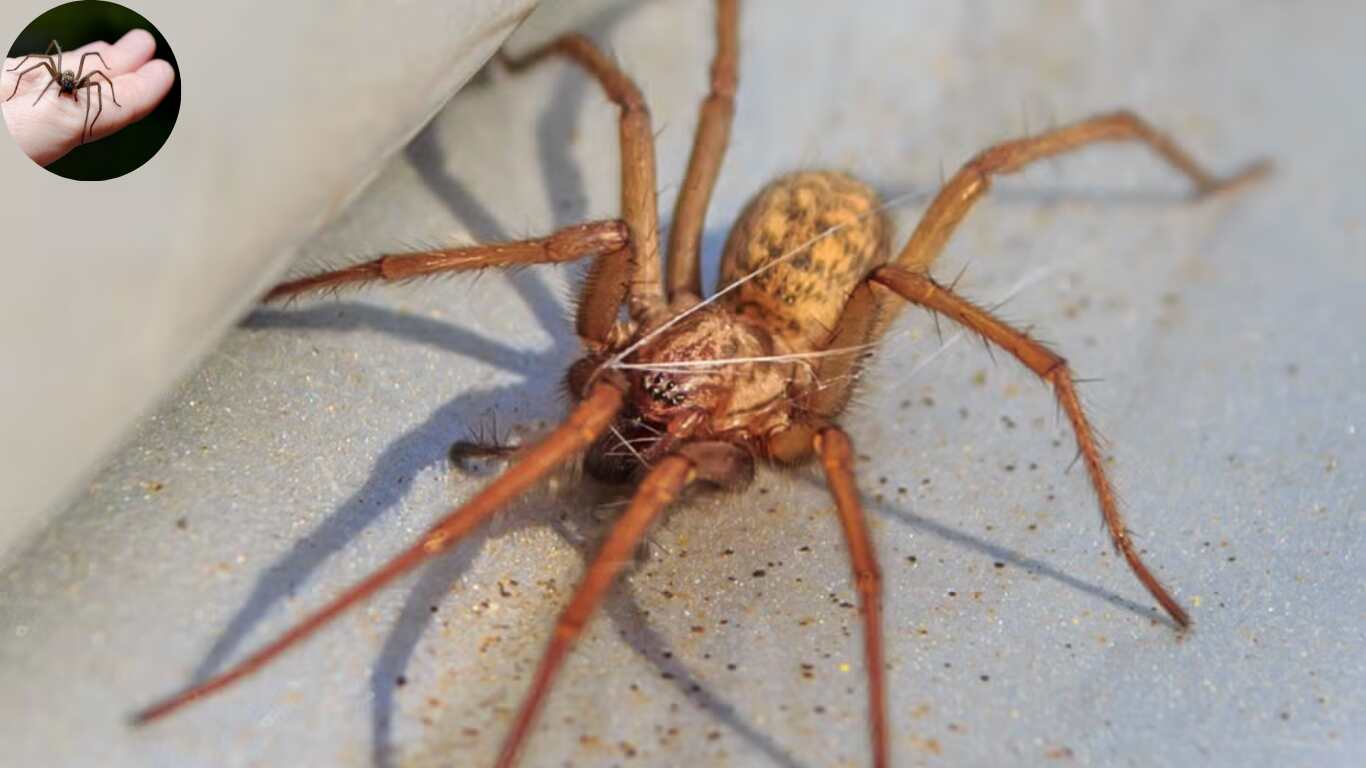
Symptoms of a House Spider Bite
If bitten by a house spider, the symptoms are usually minor, including:
- Redness
- Mild swelling
- Itching or irritation
In rare cases, individuals with allergies or sensitive skin may experience more pronounced reactions, such as a rash or minor pain.
How to Identify a House Spider Bite
A spider bite can sometimes be confused with other insect bites. Here are a few ways to identify one:
- Appearance: Small puncture marks surrounded by redness.
- Location: Areas where skin may have come into contact with the spider (e.g., hands, feet, or legs).
If symptoms worsen, such as fever or spreading redness, it may be time to consult a doctor.
First Aid and Treatment
If you suspect a house spider bite, follow these steps:
- Clean the Bite: Wash the area with soap and water to prevent infection.
- Apply Cold Compress: Reduce swelling by applying a cold pack.
- Use Over-the-Counter Creams: Anti-itch or antihistamine creams can ease irritation.
Rarely, medical attention is required, but if symptoms persist or worsen, consult a healthcare professional.
Which House Spiders Are Most Likely to Bite?
Common Species Overview
Most house spiders are harmless, but here are a few you might encounter:
- American House Spider: Small, brown, and harmless.
- Cellar Spider: Long-legged and non-aggressive.
Rare but Notable Biters
Some spiders occasionally found indoors can pose risks:
- Black Widow: Recognized by its shiny black body and red hourglass marking.
- Brown Recluse: Notable for its violin-shaped marking on the back.
These species are less common in homes but should be identified and handled cautiously.
Why Do People Think house spiders have bitten them?
Misattribution of Bites
Many “spider bites” are caused by other pests, such as:
- Bed Bugs
- Fleas
- Mosquitoes
Spiders are often blamed unfairly due to their scary reputation.
Expert Insights
According to arachnologists, spider bites are rare occurrences. For example, studies have shown that most spiders lack the ability or inclination to bite humans.
Preventing Spider Bites in the Home
Reducing Encounters with Spiders
Here are some tips to minimize spider presence:
- Clean Regularly: Remove webs and vacuum corners.
- Seal Cracks: Prevent spiders from entering by sealing gaps in windows and doors.
- Declutter: Spiders love hiding in cluttered areas.
Personal Protection
- Check Clothing: Shake out clothes, shoes, and bedding before use.
- Use Spider-Repellent: Essential oils like peppermint can deter spiders naturally.
When Should You Worry About a Spider Bite?
Recognizing Dangerous Reactions
Seek medical attention if you experience:
- Severe swelling or pain.
- Fever or chills.
- Spreading redness or pus.
Identifying Dangerous Spiders
If symptoms suggest a bite from a black widow or brown recluse, consult a doctor immediately.
House Spiders: Friend or Foe?
The Benefits of Coexisting
House spiders help control pests, making them an asset in your Home. They pose little to no threat to humans.
Managing Arachnophobia
Understanding their harmless nature can reduce fear and anxiety about spiders.
Frequently Asked Questions (FAQ)
- Do house spiders bite humans? Rarely, and only in self-defense.
- Are house spider bites dangerous? No, most are harmless.
- What should I do if bitten? Clean the area, apply a cold compress, and monitor symptoms.
- How can I tell if a spider in my Home is dangerous? Refer to physical identifiers like markings or consult a professional.
- Can house spiders harm pets? No, they are generally harmless to pets.
Conclusion
House spiders are more helpful than harmful, and bites are exceedingly rare. Understanding their behavior allows you to coexist peacefully and benefit from their pest control abilities. So, the next time you spot a house spider, remember—they’re more friend than foe! Have questions or experiences to share? Let us know in the comments!
You may also read(are centipedes good for your house)
